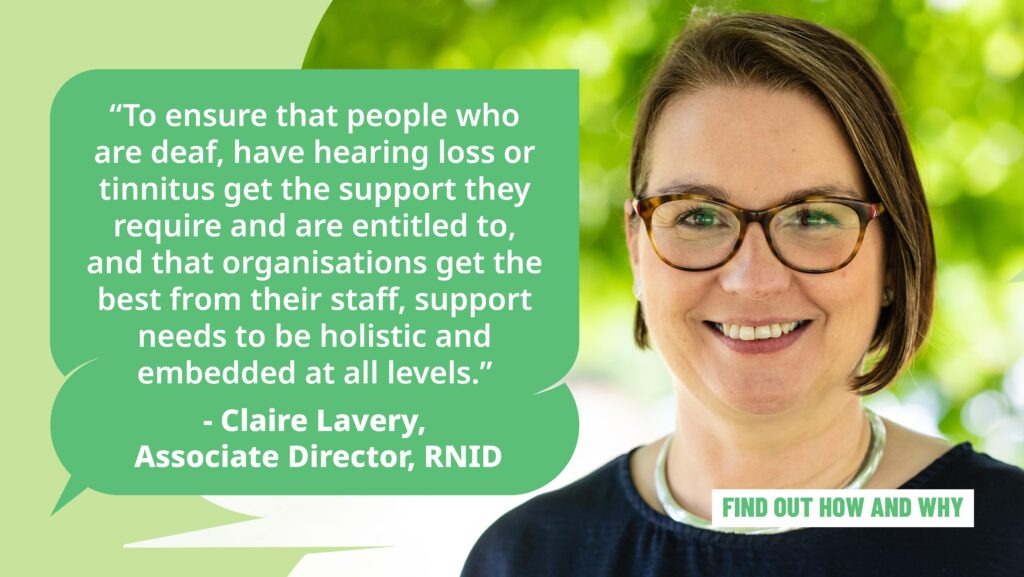
At the beginning of 2023 we launched our new employment report, which shared insight from employers and recommendations from us about how employers can become more inclusive for staff members who are deaf, have hearing loss or tinnitus.
In our final instalment of this series on the report with Claire Lavery, Associate Director for Employment we look at the need for employers to take a holistic approach to improve outcomes for staff with hearing loss.
Multi-faceted support at work
In this blog series, we have looked at the various roles that senior leaders and line managers play in shaping the experience of staff with hearing loss in the workplace. Along with HR teams and workmates, it’s clear that a range of support from across an organisation is the best way to ensure that staff who are deaf, or who have hearing loss or tinnitus thrive at work.
In our 2019 Working for Change survey, people who are deaf or have hearing loss said they felt that the greatest reason they did not get support is that their employers or colleagues do not have the knowledge to help (57%). These concerns are not unfounded – our recent Hearing Loss at Work survey of line managers indicated that only 18% had received any specific training on how to support or manage someone who has hearing loss. And nearly a third of managers said they would not know where to go to get advice about employing someone with a hearing loss.
Our survey clearly showed an appetite for more information, guidance and training. Managers want to know more about technology and assistive devices, how to manage someone with hearing loss in the workplace, and information on the law and Government support schemes. Top of their wish list was training on British Sign Language and Deaf Awareness Training.
What should employers do?
To ensure that people who are deaf, have hearing loss or tinnitus get the support they require and are entitled to, and that organisations get the best from their staff, support needs to be holistic and embedded at all levels.
This will, of course, look different depending on the size and configuration of an organisation but our suggestions for best practice are:
- Provide Deaf Awareness Training for all staff
- Grow expertise in HR departments, so they can offer tailored advice and signpost to useful resources
- Ensure line managers are confident to manage staff who disclose hearing loss and know how to implement reasonable adjustments
- Share information about resources and support through your internal communication channels
- Roll out RNID’s online hearing check to help normalise conversations about hearing loss at work
- Ensure your policies and procedures take account of hearing loss, including recruitment processes, and guidance on accessibility for everyday practices, like meetings.
- Get buy-in from the top, particularly from senior leaders who have hearing loss themselves, to create a safe and supportive culture where people feel confident to ask for the support they need and are entitled to
- Consider not just the needs of your current workforce but the changing demographics of your future workforce.
Everyone has a role to play and sometimes the smallest adjustments can make a big difference.
Get in touch
For further information and support to make your workplace inclusive for people who are deaf, or have hearing loss or tinnitus get in touch with our experts at RNID.